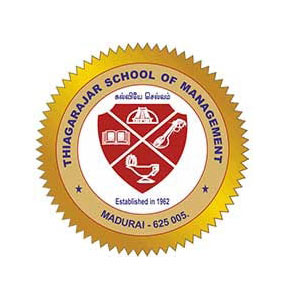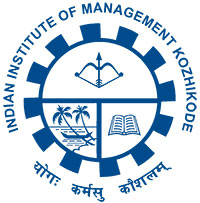DEPARTMENT OF BIOTECHNOLOGY (B.TECH BIOTECH)
The Department of Biotechnology was established in 2020. We provide excellence in academics/research and believes in the holistic development of the students .We encourage students to achieve success by providing quality education and research facilities, supported with dynamic and focused curriculums, well-trained biotechnologists are developed to suit academia/industry/research perspectives. The faculty is efficiently involved with students to enhance their practical knowledge and scientific aptitude. The Department has very highly qualified teaching faculty with Doctorate degree from premier institutions in the different areas of Biotechnology. The Department has a wide range of laboratories namely, Biochemistry Lab, Microbiology Lab, Fermentation Biotechnology Lab, Down Stream Processing Lab, Immunology Lab, Enzyme Engineering Lab, Bioprocess Engineering Lab, Genetics and Molecular Biology Lab, Plant Biotechnology Lab, Bioinformatics Lab, equipped with instrument facilities like PCR, Gel Documentation System, Spectrophotometer, BOD incubator, deep freezer etc. The undergraduate programme B. Tech Biotechnology offered by Department of Biotechnology is approved by AICTE, New Delhi and affiliated to Dr. A. P.J. Abdul Kalam Technical University, Lucknow.
Vision
To impart the best knowledge in the field of Biotechnology and equip the students with advanced experimental skills to shape them to become distinguished academicians/ scientists/ researchers/ entrepreneurs to serve the society, country and humanity at large.
Mission
To develop a strong Biotechnology Engineering program based on quality education, research and training.
To impart quality education to the students and enhance their skills which will make them globally competitive.
To develop trained biotechnology professionals who can contribute to the continuous improvement of biotechnological services and products.
To develop scientific and/or technical resources as per biotechnology industry demands.
To nurture confident individuals who are effective contributors towards growth of the nation.
Program Outcomes (PO)
PO-1: Engineering knowledge:Apply the knowledge of mathematics, science, engineering fundamentals, and an engineering specialization to the solution of complex engineering problems.
PO-2: Problem analysis:Identify, formulate, review research literature, and analyze complex engineering problems reaching substantiated conclusions using first principles of mathematics, natural sciences, and engineering sciences.
PO-3: Design/development of solutions:Design solutions for complex engineering problems and design system components or processes that meet the specified needs with appropriate consideration for the public health and safety, and the cultural, societal, and environmental considerations
PO-4: Conduct investigations of complex problems:Use research-based knowledge and research methods including design of experiments, analysis and interpretation of data, and synthesis of the information to provide valid conclusions.
PO-5: Modern tool usage:Create, select, and apply appropriate techniques, resources, and modern engineering and IT tools including prediction and modeling to complex engineering activities with an understanding of the limitations.
PO-6: The engineer and society:Apply reasoning informed by the contextual knowledge to assess societal, health, safety, legal and cultural issues and the consequent responsibilities relevant to the professional engineering practice.
PO-7: Environment and sustainability:Understand the impact of the professional engineering solutions in societal and environmental contexts, and demonstrate the knowledge of, and need for sustainable development.
PO-8: Ethics:Apply ethical principles and commit to professional ethics and responsibilities and norms of the engineering practice.
PO-9: Individual and team work:Function effectively as an individual, and as a member or leader in diverse teams, and in multidisciplinary settings.
PO-10: Communication:Communicate effectively on complex engineering activities with the engineering community and with society at large, such as, being able to comprehend and write effective reports and design documentation, make effective presentations, and give and receive clear instructions.
PO-11: Project management and finance:Demonstrate knowledge and understanding of the engineering and management principles and apply these to one’s own work, as a member and leader in a team, to manage projects and in multidisciplinary environments.
PO-12: Life-long learning:Recognize the need for, and have the preparation and ability to engage in independent and life-long learning in the broadest context of technological change.
Program specific outcomes (PSO’s)
PSO1: Engineering Graduates shall have the ability to apply fundamental knowledge of biological science, engineering principles and scientific methods to solve the biotechnology- related problems
PSO2: Engineering Graduates shall have the research-based knowledge like; Experimental design, analysis and interpretation of biological data related to bioprocess engineering, genetics engineering, molecular biology and bioinformatics etc, for the developments in biotechnology.
PSO3: Engineering Graduates shall have the ability to work individually or in groups with strong moral values to promote the importance of entrepreneurship, communication and management skills for the next generation biotechnologists.
PSO4: Engineering Graduates shall have the ability to integrate biological knowledge and concepts with the ethical and industrial perspectives of biotechnology.
Course Outcome (CO)
Institute is affiliated to Dr. A. P. J. Abdul Kalam Technical University Lucknow therefore course outcome (CO) of each course is defined by the BOS of the university.






